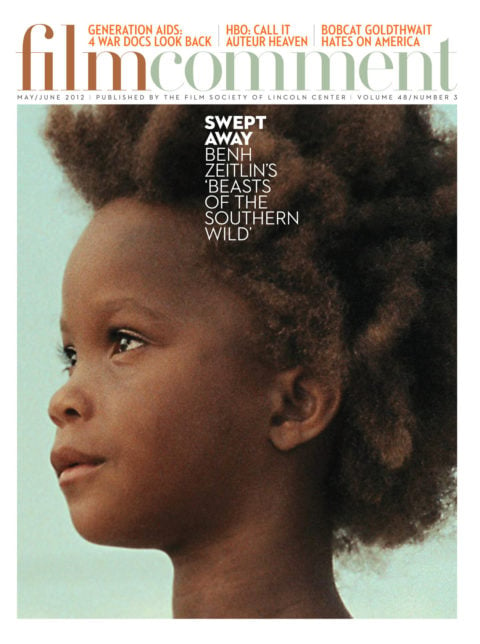
Documenting a road trip undertaken by one of the most plausibly despicable brother-sister pairings in all of cinema, Alex Ross Perry’s second feature The Color Wheel is an astonishing work of pathos that broaches the question of redemption by way of a sincerity shellacked with layer upon layer of cynical vitriol.
The director plays Colin, a twentysomething who has all but given up on attaining an existence that is conventionally interesting. Living with his parents and his girlfriend (who couldn’t seem less attracted to him) under one roof, he is the picture of thinly veiled social immobility. His sense of humor largely hinges on a disingenuous racism that he alone finds funny (“My sexual preference is for white women and I don’t expect to be discriminated against because of that,” he declares half-seriously and totally pathetically). His awkward movements—which suggest a self-loathing walking corpse—convey an estrangement between mind and body; his fetish for gargoyle figurines implies a development not so much arrested as aborted.

Colin’s sister J.R. (Carlen Altman, the film’s co-writer) is just as repulsive: an irrepressible narcissist who didn't learn to read until she was 10 and who aspires to become a TV weather girl, she is her family’s black sheep and then some, excluded even from a family trip to Puerto Rico. Having recently broken up with her boyfriend Neil (her former broadcasting professor, played with ingenious monotone wit by filmmaker Bob Byington), J.R. asks Colin’s help with retrieving the few belongings she has left behind in her ex’s apartment. The two siblings hit the road and plunge headfirst into a world that is, miraculously, even crueler than they are.
The Color Wheel makes spectacle out of schadenfreude: the exhilarating rapidity with which Colin and J.R. verbally eviscerate each other almost obscures the brilliance of Perry and Altman’s script. Their plentiful mutual disdain and the contempt that their environment harbors for them accounts for much of the film’s engagingly sour tone. The narrative progresses by way of simple, often gorgeous black-and-white 16mm compositions (hat tip to Sean Price Williams, who also shot Ronald Bronstein’s exquisitely feel-bad Frownland and Perry’s deliriously spacey 2009 debut Impolex). These images contribute to the oddly serene mood of the journey’s beginnings, an atmosphere borrowed wholesale from The Brown Bunny. More than a little bit paradoxically, The Color Wheel smothers you with its characters’ prickly dispositions while simultaneously giving you plenty of mental room to consider the implications of the psychosocial chaos unfolding within its rich mise en scène.
The result is a thorough examination of a generation-specific collective anxiety about doing anything, and of whether it’s possible (or even worthwhile) to try to redeem oneself in a world gone ornery. I don’t expect to see another film released this year that approaches the crux of the Human Condition Today as effectively. Perry plants an exceptionally thorny rose bush on the grave shared by Jean Eustache, Céline, and other, similarly ruthless observers of society’s hypocrisies and poorly concealed shames. That a filmmaker of his experience (working quickly with a minuscule budget) is responsible suggests that American independent cinema’s young, repertory theater-frequenting contingent is on the verge of achieving something on par with their oft-acknowledged idols.








